A half marathon is a perfect way to break into the marathon scene. We know that there is a lot of work and preparation that goes into training for any kind of marathon, and we have a few tips for when it comes to participating in your first half-marathon.
There are many different ways to prepare for your first marathon, but you first should do a little research. Before you start getting into the nitty gritty of training for it, going online and looking for half marathons near you is a great place to start. Find all the information you need and which half marathon works best for you, and make sure to find one on a timeline that works best for your training schedule. Give yourself time to build up to the duration of the marathon you are running, and get used to running long distances.
Our first tip is to find a good training routine. This will help you build your stamina and develop good habits that will help you work towards longer distances and increased running times. You will want to make sure you stick to this routine, including your rest days. You don't want to work yourself too hard and risk injury before the big day, so make sure to give yourself rest days when appropriate to recover and heal. You also need to remember that life happens, things come up, and sometimes we can't make training happen. Small adjustments are certainly fine but don't make a habit of skipping any part of your routine. Just like the half-marathon or marathon you're training for, your training is a long-term goal, so the more consistent you are, the easier it will be for you.
Part of your training days should start with good food and hydration to ensure you are in tip-top shape. You will want to stay consistent with your food and water habits during this time. Food is fuel, and your body will need it. Pack some energy bars, energy gels, or energy chews to help give you those carbohydrates needed for running long distances. Hydrating properly is critically important. Dehydration can make for a miserable experience during your first marathon and lead to severe health issues. So make sure you have plenty of electrolytes and are hydrating.
Our second tip is to have the proper gear. When running long distances, whether during training or a competitive marathon, having the right attire can make a huge difference. Improper gear can lead to strains and injuries. You don't need a lot of running gear, which we feel is an added plus, but having right running gear can make a difference in your comfort during the run and how quickly you recover afterward. Good, comfortable, moisture-wicking running shirts and shorts/(pants/leggings are great to make your run as comfortable as possible.
Let's talk about some of the most important parts of your running attire: socks and shoes. Socks are just as important as your shoes when it comes to running. Getting specially designed running socks to go with a high-quality running shoe is a must. Here at FitSok, we have a variety of running socks for all your marathon needs. You don't want to get blisters or sweaty wet feet, you want your feet kept dry and thermally balanced while running. Your shoes should also be optimal for running, but everyone has different preferences when it comes to running, so when it comes to finding a shoe that works best for you, a good way to go about it would be to try some on and see what feels best for you.
Our third tip when it comes to your first half marathon is cross-training. There are many benefits when it comes to cross-training, but most importantly, it helps reduce injury. For cross-training, the idea is to add low-impact activities to your primary training schedule. This helps relax and stretch the muscles and joints while still being active. It is important to integrate cross-training days into your training schedule. The harder you run, the harder you are on your body, so by adding cross-training low-impact days into your schedule, you can rest your body while still working towards your goal. One important note: cross-training should NOT replace recovery days in your training. Having set days to rest and recover is just as important as any other part of your training.
There are many forms of cross-training, so finding one that you enjoy and can add to your training routine is entirely up to you! Swimming and pool running are great examples of low-impact cross-training, activities in the water are much less impactful on joints and muscles, making perfect examples of cross-training. Yoga is also a great form of cross-training; it is low impact but very strengthening, especially to the back and core muscles. Bike riding can also be part of cross-training, whether on a bike or a stationary bike. This is a good way to get yourself moving without going too hard on your body. Make sure, however, you're not working too hard. Last but not least, walking is a great cross-training activity. Walking is low impact and can be a great way to get outdoors and fresh air while still taking it easy on your body.
Our fourth tip is being mentally prepared! Being mentally prepared is just as important as being physically ready. Half marathons and even marathons are challenging on the body and the mind. Focus should be your goal, but accept there may be times when you consider quitting. Being mentally strong and pushing forward is half the battle, as is accepting that it is normal to have those thoughts and emotions during such a long run. You don't want to view these thoughts as you failing or giving up. Train yourself to stay focused and remember your goal. Having self-confidence in your running capabilities is another major part of preparing mentally. The better trained and physically prepared, the better you will feel mentally when you start the big race.
While we know the above tips will help you see your way to the end of your first half-marathon, remember to have fun! We know that even when it's hard, running can be joyful. You have worked so hard to get here, don't forget to enjoy the process and the rewards along the way. Believe in yourself and all your hard work, and you can finish your first half marathon with your head held high!
There are many different ways to prepare for your first marathon, but you first should do a little research. Before you start getting into the nitty gritty of training for it, going online and looking for half marathons near you is a great place to start. Find all the information you need and which half marathon works best for you, and make sure to find one on a timeline that works best for your training schedule. Give yourself time to build up to the duration of the marathon you are running, and get used to running long distances.
Our first tip is to find a good training routine. This will help you build your stamina and develop good habits that will help you work towards longer distances and increased running times. You will want to make sure you stick to this routine, including your rest days. You don't want to work yourself too hard and risk injury before the big day, so make sure to give yourself rest days when appropriate to recover and heal. You also need to remember that life happens, things come up, and sometimes we can't make training happen. Small adjustments are certainly fine but don't make a habit of skipping any part of your routine. Just like the half-marathon or marathon you're training for, your training is a long-term goal, so the more consistent you are, the easier it will be for you.
Part of your training days should start with good food and hydration to ensure you are in tip-top shape. You will want to stay consistent with your food and water habits during this time. Food is fuel, and your body will need it. Pack some energy bars, energy gels, or energy chews to help give you those carbohydrates needed for running long distances. Hydrating properly is critically important. Dehydration can make for a miserable experience during your first marathon and lead to severe health issues. So make sure you have plenty of electrolytes and are hydrating.
Our second tip is to have the proper gear. When running long distances, whether during training or a competitive marathon, having the right attire can make a huge difference. Improper gear can lead to strains and injuries. You don't need a lot of running gear, which we feel is an added plus, but having right running gear can make a difference in your comfort during the run and how quickly you recover afterward. Good, comfortable, moisture-wicking running shirts and shorts/(pants/leggings are great to make your run as comfortable as possible.
Let's talk about some of the most important parts of your running attire: socks and shoes. Socks are just as important as your shoes when it comes to running. Getting specially designed running socks to go with a high-quality running shoe is a must. Here at FitSok, we have a variety of running socks for all your marathon needs. You don't want to get blisters or sweaty wet feet, you want your feet kept dry and thermally balanced while running. Your shoes should also be optimal for running, but everyone has different preferences when it comes to running, so when it comes to finding a shoe that works best for you, a good way to go about it would be to try some on and see what feels best for you.
Our third tip when it comes to your first half marathon is cross-training. There are many benefits when it comes to cross-training, but most importantly, it helps reduce injury. For cross-training, the idea is to add low-impact activities to your primary training schedule. This helps relax and stretch the muscles and joints while still being active. It is important to integrate cross-training days into your training schedule. The harder you run, the harder you are on your body, so by adding cross-training low-impact days into your schedule, you can rest your body while still working towards your goal. One important note: cross-training should NOT replace recovery days in your training. Having set days to rest and recover is just as important as any other part of your training.
There are many forms of cross-training, so finding one that you enjoy and can add to your training routine is entirely up to you! Swimming and pool running are great examples of low-impact cross-training, activities in the water are much less impactful on joints and muscles, making perfect examples of cross-training. Yoga is also a great form of cross-training; it is low impact but very strengthening, especially to the back and core muscles. Bike riding can also be part of cross-training, whether on a bike or a stationary bike. This is a good way to get yourself moving without going too hard on your body. Make sure, however, you're not working too hard. Last but not least, walking is a great cross-training activity. Walking is low impact and can be a great way to get outdoors and fresh air while still taking it easy on your body.
Our fourth tip is being mentally prepared! Being mentally prepared is just as important as being physically ready. Half marathons and even marathons are challenging on the body and the mind. Focus should be your goal, but accept there may be times when you consider quitting. Being mentally strong and pushing forward is half the battle, as is accepting that it is normal to have those thoughts and emotions during such a long run. You don't want to view these thoughts as you failing or giving up. Train yourself to stay focused and remember your goal. Having self-confidence in your running capabilities is another major part of preparing mentally. The better trained and physically prepared, the better you will feel mentally when you start the big race.
While we know the above tips will help you see your way to the end of your first half-marathon, remember to have fun! We know that even when it's hard, running can be joyful. You have worked so hard to get here, don't forget to enjoy the process and the rewards along the way. Believe in yourself and all your hard work, and you can finish your first half marathon with your head held high!
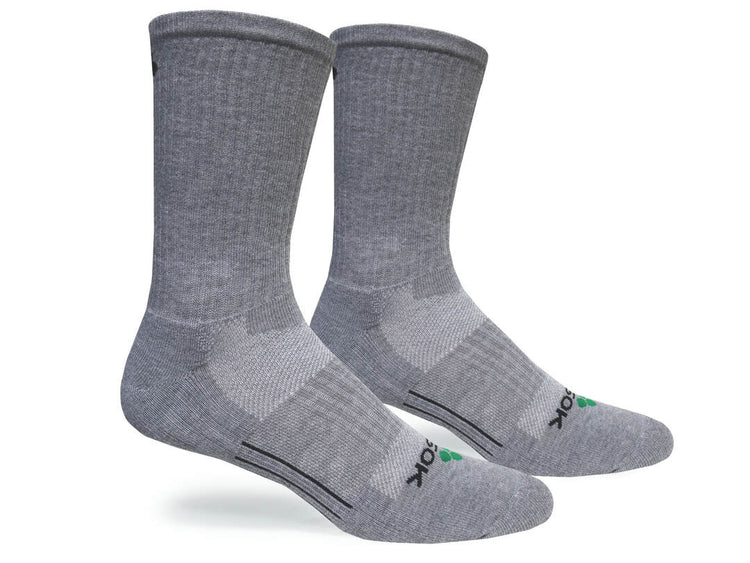
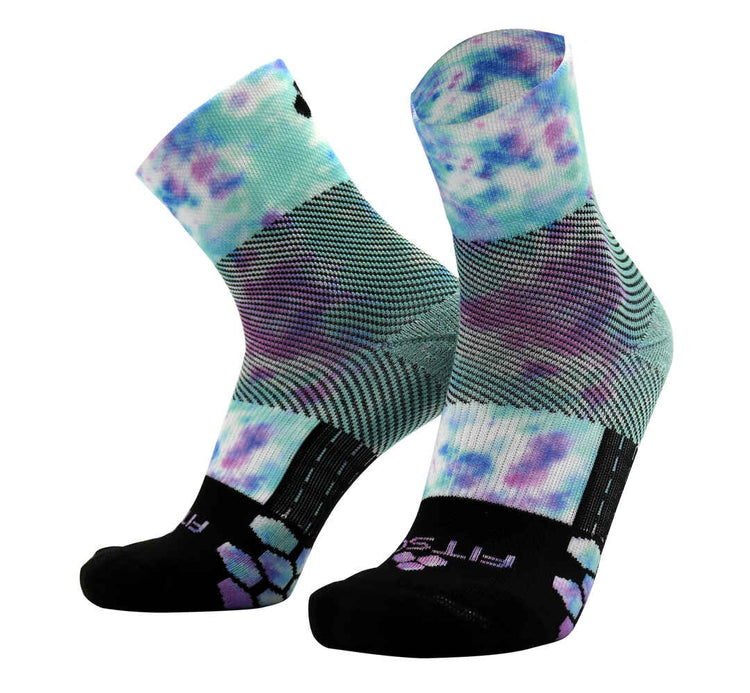
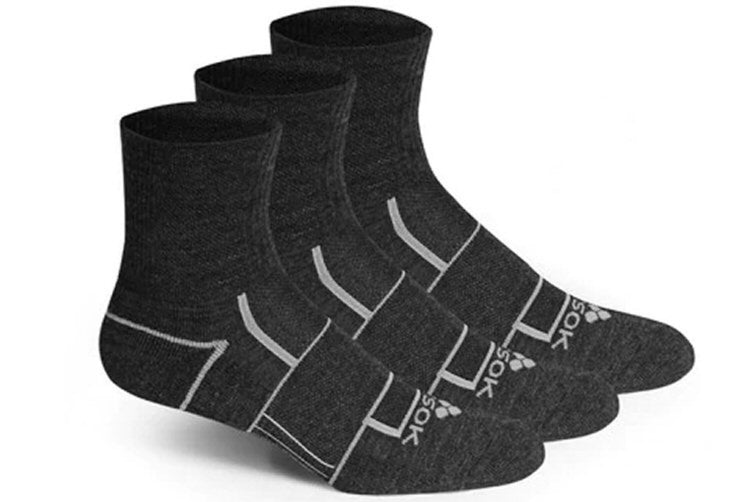
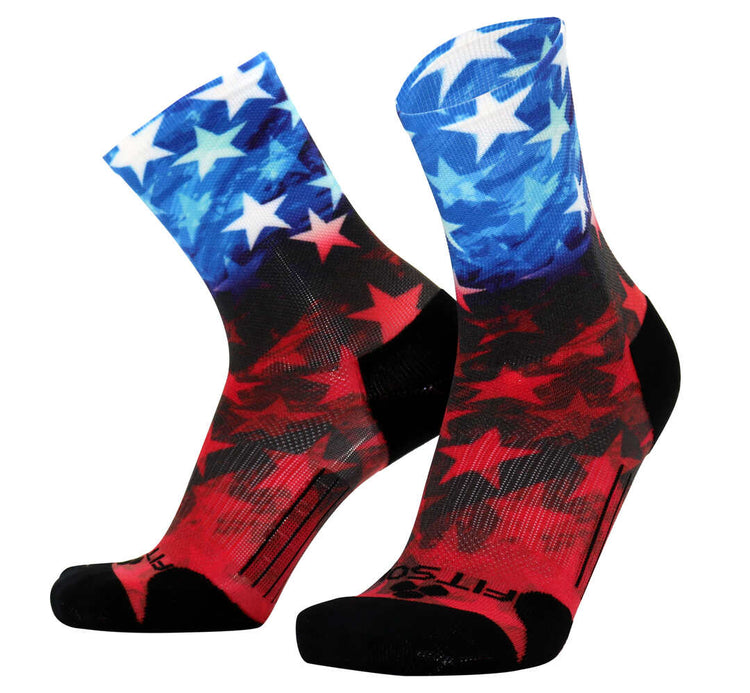
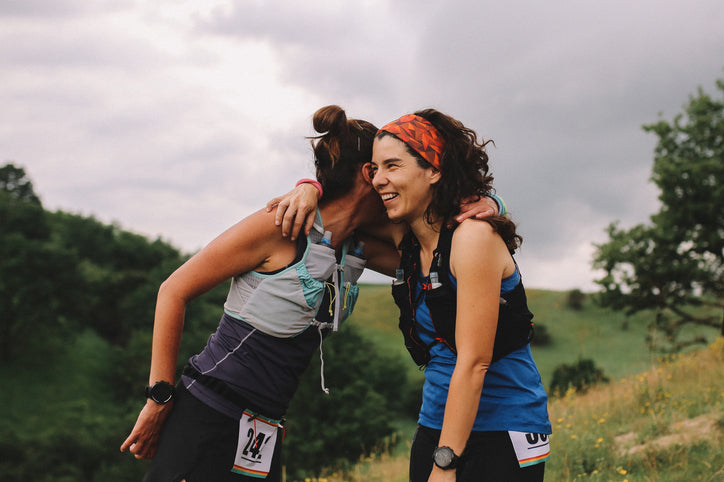

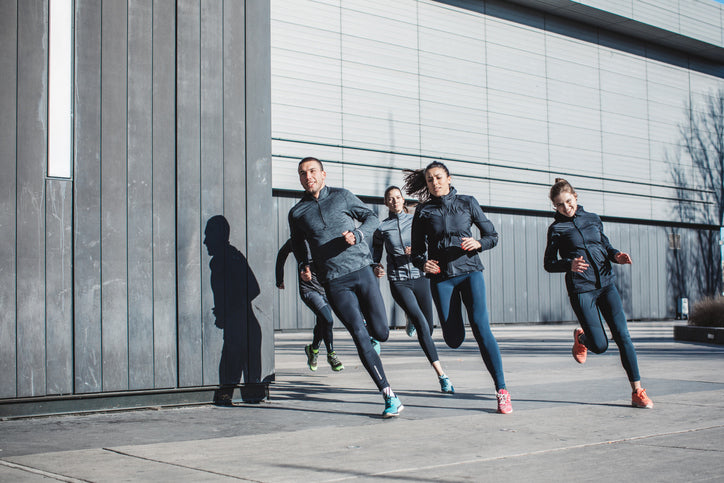
Leave a comment
This site is protected by hCaptcha and the hCaptcha Privacy Policy and Terms of Service apply.